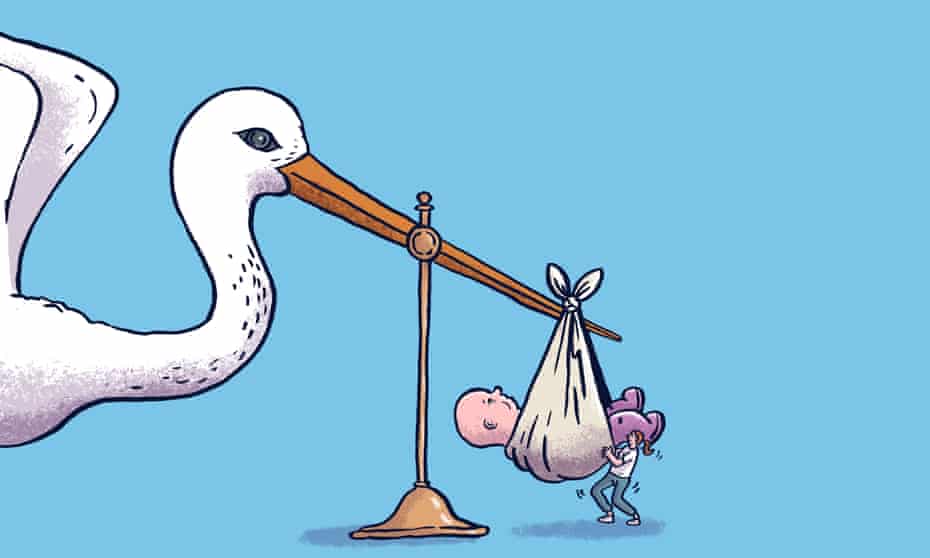
It didn’t take long for confident predictions of a Covid baby boom to emerge last spring. Locked up together, with only Netflix for company, what else are couples going to do? (Nudge, wink.) “Haven’t they heard of contraception?” one friend asked drily, as the country waited anxiously to hear about furlough while being warned the NHS was in mortal peril.
"It is time to reassess our obsession with women’s fertility and the number 35"
This puerile “more or less sex?” approach too often serves as a substitute for a proper debate about fertility. There is a paradox at the heart of population politics. There is no decision more intensely personal and life-changing than whether and when to have children, and with whom. Yet the aggregate of all those intimate choices is the fertility rate: a dry, wonky statistic that tells you how many children women have on average, which policymakers in affluent countries have been sounding alarm bells over.
Given what’s at stake, the debate falls far short. Too much of it can be summed up by “let’s educate women about their fertility so they have kids earlier” (conveniently forgetting that it takes two to tango). The policy solutions are often laughably incremental – from Italy’s one-off €800 “baby bonus” to Japan investing in matchmaking AI.
Helping people who want to have children is an absolute no-brainer. This is partly a financial endeavour. It’s tough to think about children when you’re a renter in precarious work, at repeated risk of getting kicked out when your tenancy expires. Not only are we not sorting out these fundamentals, but the Conservatives have drastically reduced financial support for low-paid parents over the last decade.
"Parenthood involves sacrifices, but that sacrifice falls disproportionately on the shoulders of mothers"
It is also about funding fertility treatment for everyone who wants it and could benefit, including single women and same-sex couples. Yet a misogynistic ickiness about this – why should the state be subsidising the life choices of women who have supposedly put career before babies? – has allowed NHS funding for fertility treatment to be dramatically scaled back. (Declining male fertility barely gets mentioned in this context: more convenient to blame the barren selfish women.)
This is most obviously true about careers: parenthood worsens the pay gap because women are much better financially compensated for taking time out to care for young children and then, because they earn less on average, it makes more financial sense for them rather than fathers to go back part-time, the surest way to stymie your career. But it is about so much more: the housework, the emotional labour of ensuring everyone’s OK, the isolation that can result from uneven social sacrifice, the aspects of life that have nothing to do with motherhood that can sink without trace. If we want more people to want more children, we need to think about how to create a culture where it is the norm for all parents of young children – fathers included – to work part-time and share the load more equally; policies such as at least three months of generous use-it-or-lose-it paternity leave can help set these norms.
These are big social changes with no easy answers. We could simply choose to accept the product of individual organic choices, but on current trends, we should prepare ourselves for a grim and gradual economic transition to a poorer society. Or we could focus on accelerating along the path of gender equality so it’s no longer women making most of the sacrifices and start to talk about what modern approaches to relationships mean for having children. But we shouldn’t kid ourselves that baby bonuses will resolve the population conundrum.
======

No comments:
Post a Comment